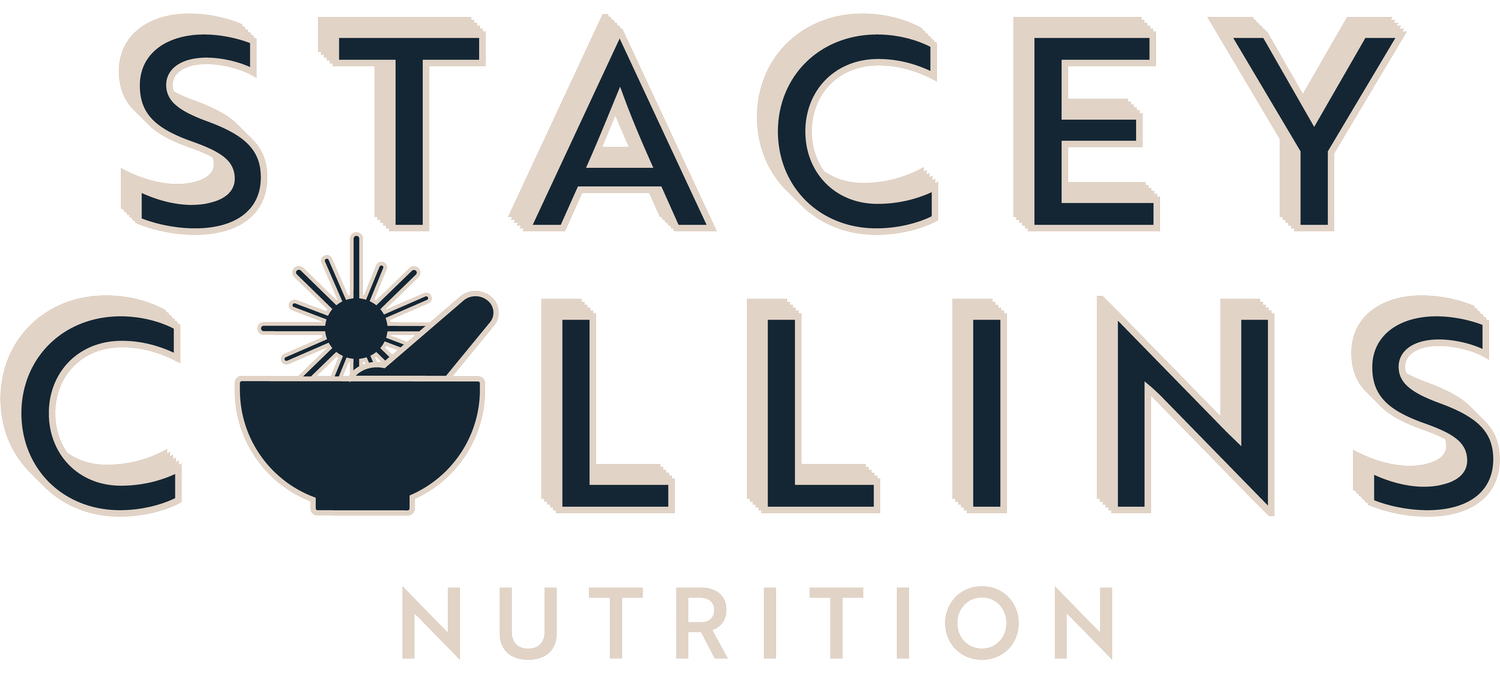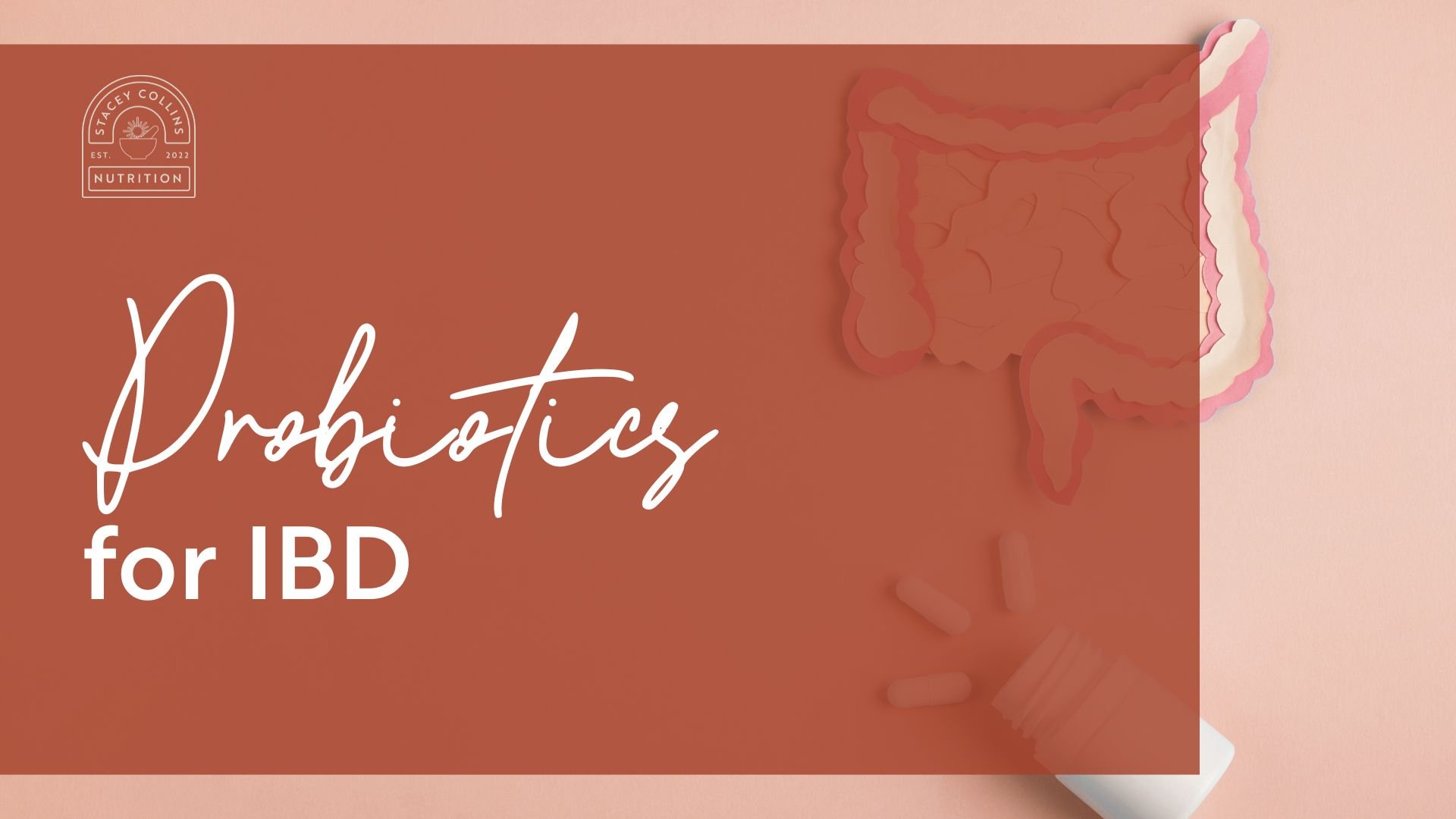Probiotics for IBD
What is a Probiotic?
Probiotics are tiny living things, or microorganisms, that have intended health benefits when you eat them or put them on your body. Probiotics are not the same as prebiotics, which are nondigestible food components intended to encourage the growth of bacteria. For the sake of today’s post, let’s focus on probiotics coming from food sources.
Let’s start with the good news first:
More high-quality clinical trials are coming! These studies are desperately needed. Until then, here’s an abbreviated summary of what we know when it comes to probiotic supplementation with IBD:
In their 2023 review of research, The British consensus guidelines suggest that in some patients with mildly active ulcerative colitis, taking specific probiotics alongside prescribed medication (mostly 5-ASAs) may support induction of remission in cases of mild disease. Additionally, probiotics with specific strains may help maintain remission in chronic relapsing pouchitis in people who live with a j-pouch. However, there’s no evidence to suggest that the same is true for Crohn’s disease(1). Before you purchase a probiotic…
Here are 3 Important Considerations Before You Buy:
1: Mechanism Matters: What is the benefit claim of the probiotic in question?
Has the probiotic been shown in research to enhance host immunity? For example, is the article you’re reading referencing:
Influences on the immune system
Production of cell-signaling proteins (cytokines) that influence the immune system
Synthesis of antibodies (E.g., IgA)?
Is the probiotic performing metabolic functions, such as:
A substance that affects metabolism (metabolite)
Drug metabolism
Calorie enhancement?
Or, has the probiotic been shown to help facilitate gut-brain communication?
Stress, anxiety, depression
Bacterial effects on brain function
Keeping these mechanisms in mind, this begs the question:
2. How were these conclusions about probiotic mechanisms explored through the research?
Strain selection- did the scientists reference specific strains (E.g., Bifidobacterium bifidum strain Yakult)?
Formulation- did the study provide a single probiotic? Or was this a cocktail of 2 or more?
Vehicle- was this given to research participants via a powder? Capsules? Fermented foods? How was this probiotic administered?
Dosing- this would look something like, 109 to 1010 CFU/day for 5–10 days, for example. To date, studies are not consistent with dosing (2,3).
3. Lastly, what quality assurance measurements is this probiotic supplement company taking?
Is an independent organization reviewing the manufacturing process and verifying ingredient safety, label integrity, and shelf-life stability? Look for a label that reads “NSF” to be certain (4)
In Summary…
There are a number of considerations in regards to how probiotics are being researched ranging from dosages to mechanism of actions to benefit claims, and more consistency in research trials is needed before we can draw hard and fast conclusions from the science for application. Consider using the dollars that you had planned for a probiotic supplement for food sources of probiotics instead, until the research is more conclusive in supporting safety and efficacy of probiotic supplementation for IBD. We aren’t there yet with the science. In the meantime, here are some probiotic foods to add into your rotation:
Brown rice
Cabbage
Cassava
Kimchi
Millet
Olives
Pickles
Sorghum
Soybeans
Yogurts (5)
Disclaimer: the above list or summary of the literature is not prescriptive, nor should it replace any advice of a trusted medical team. If you struggle to safely tolerate any of the aforementioned foods and feel you would benefit from an IBD-focused Registered Dietitian Nutritionist, please reach out for support, and we can discuss your individualized nutrition needs.
Frequently Asked Questions About Probiotics for IBD
-
Probiotics are live microorganisms that, when consumed in adequate amounts, confer health benefits to the host. They are commonly found in fermented foods and dietary supplements.
-
No, probiotics are live beneficial bacteria, whereas prebiotics are nondigestible food components that promote the growth of these beneficial bacteria in the gut.
-
The effectiveness of probiotics in managing IBD varies. Some studies suggest that specific probiotic strains may aid in inducing remission in mild ulcerative colitis and maintaining remission in chronic relapsing pouchitis. However, there is currently no evidence to support their efficacy in Crohn's disease.
-
Before taking a probiotic supplement for IBD, consider the following:
Mechanism of Action: Understand the intended health benefit of the probiotic, such as enhancing immunity, performing metabolic functions, or facilitating gut-brain communication.
Research Evidence: Check if the probiotic strain has been studied for its effectiveness in IBD management, including details on strain selection, formulation, administration method, and dosing.
Quality Assurance: Ensure the supplement has undergone independent quality assessments for manufacturing processes, ingredient safety, label accuracy, and shelf-life stability. Look for certifications like NSF.
-
Yes, incorporating probiotic-rich foods into your diet can be beneficial. Some examples include:
Yogurts
Kimchi
Olives
Pickles
Fermented soy products like tempeh and miso
These foods can support gut health and may be a preferable option over supplements until more conclusive research is available.
References
Lomer MCE, Wilson B, Wall CL. British Dietetic Association consensus guidelines on the nutritional assessment and dietary management of patients with inflammatory bowel disease. J Hum Nutr Diet. 2023;36(1):336-377. doi:10.1111/jhn.13054
National Sanitation Foundation International (NSF International) (2020). NSF International. Available online at: https://www.nsfsport.com/ (accessed September 22, 2022).
Quigley EMM. Clinical Trials of Probiotics in Patients With Irritable Bowel Syndrome: Some Points to Consider. J Neurogastroenterol Motil. 2022;28(2):204-211. doi:10.5056/jnm22012
Quigley, E. (2022, May). Building Optimal Gut Health: Possibility or Pipe Dream? . Digestive Disease Week 2022. San Diego, CA.
Min M, Bunt CR, Mason SL, Hussain MA. Non-dairy probiotic food products: An emerging group of functional foods. Crit Rev Food Sci Nutr. 2019;59(16):2626-2641. doi:10.1080/10408398.2018.1462760

